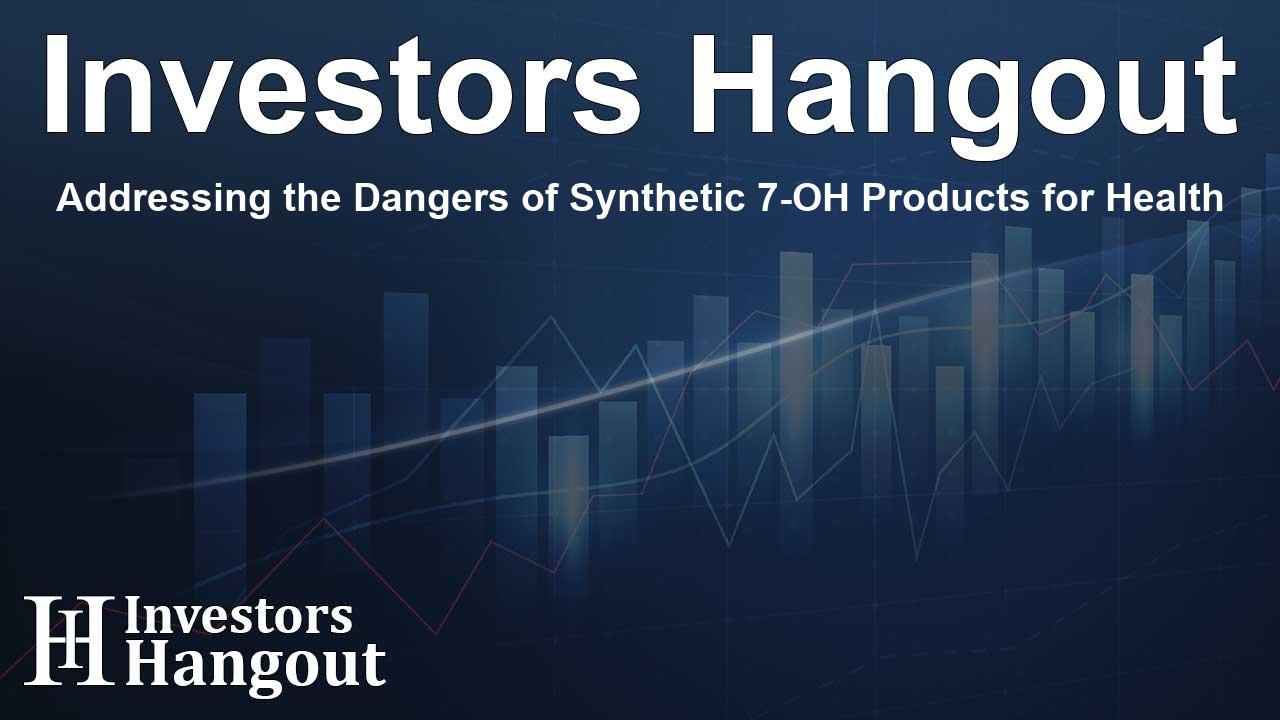Addressing the Dangers of Synthetic 7-OH Products for Health

A Worrying Trend: The Rise of Synthetic 7-OH Products
The Scientific Association for Botanical Education and Research, commonly known as SABER, has issued a warning about the increasing public health risks associated with products marketed as synthetic 7-hydroxymitragynine (7-OH). These products are often mislabeled and falsely presented as kratom leaf extracts, which carry significant dangers.
Understanding 7-OH and Its Risks
Unlike traditional kratom leaves that have a long history of use for their mild energy-boosting and pain-relieving properties, synthetic 7-OH is a highly potent and unregulated chemical. Professor Paula Brown from the BC Institute of Technology emphasizes that "Synthetic 7-OH is not kratom; it's a dangerous substance." This misrepresentation may mislead consumers, who might think they are purchasing a plant-based, safer alternative, when in reality, they could be risking their health.
Major Concerns Expressed by SABER
SABER has raised several crucial concerns regarding the synthetic 7-OH products entering the market:
1. Potency and Risk of Abuse
Synthetic 7-OH has been reported to be up to 30 times more potent than morphine at opioid receptors, creating an alarming potential for addiction and overdose. This drastic variance in power makes it a compelling risk for consumers unaware of its effects.
2. Deceptive Marketing Practices
These synthetic products are frequently marketed as “natural kratom extracts,” misleading consumers into believing they are making safer choices. This deception not only jeopardizes consumer safety but also undermines the integrity of genuine natural products.
3. Serious Health Risks
Due to a lack of comprehensive clinical safety data on synthetic 7-OH products, users face significant health threats. The potential for respiratory depression, toxicity, and dependence highlights the urgent need for better regulation and consumer education.
4. Regulatory Shortcomings
As it stands, synthetic 7-OH does not meet the FDA's definitions for food or dietary supplements, categorizing it as an unapproved drug. Several states have taken matters into their own hands by enacting bans on synthetic 7-OH products that exceed 2% alkaloids. This reflects an awareness and a regulatory step towards consumer protection.
Call for Action from Consumers and Policymakers
SABER is urging policymakers to implement stricter regulations surrounding synthetic 7-OH products. It’s crucial that those who produce and sell these misleadingly marketed products face accountability. There is a pressing necessity for comprehensive legislation that aligns with the Kratom Consumer Protection Acts, which would not only protect the public but also ensure access to safe kratom products.
About SABER
The Scientific Association for Botanical Education and Research (SABER) is committed to enhancing public knowledge, education, and regulations surrounding botanicals. Through extensive research and advocacy, SABER promotes the safe, informed use of plant-based products, engaging with the community and policymakers alike.
Frequently Asked Questions
What are synthetic 7-OH products?
Synthetic 7-OH products are artificially produced substances marketed as alternatives to natural kratom extracts, often containing misleading information about their safety and origin.
Why is synthetic 7-OH considered dangerous?
Synthetic 7-OH is significantly more potent than natural kratom, leading to a higher risk of addiction, overdose, and other severe health complications.
How are these products misleading consumers?
Manufacturers often label synthetic 7-OH products as “natural extracts,” which misleads consumers into thinking they are purchasing safe, plant-based alternatives.
What actions is SABER calling for?
SABER is advocating for stricter regulations and accountability measures against manufacturers who mislead consumers about the safety of synthetic 7-OH products.
Is there a need for regulatory changes regarding these products?
Yes, there is an urgent need for regulatory changes to close loopholes and protect consumers from unregulated synthetic substances.
About The Author
Contact Olivia Taylor privately here. Or send an email with ATTN: Olivia Taylor as the subject to contact@investorshangout.com.
About Investors Hangout
Investors Hangout is a leading online stock forum for financial discussion and learning, offering a wide range of free tools and resources. It draws in traders of all levels, who exchange market knowledge, investigate trading tactics, and keep an eye on industry developments in real time. Featuring financial articles, stock message boards, quotes, charts, company profiles, and live news updates. Through cooperative learning and a wealth of informational resources, it helps users from novices creating their first portfolios to experts honing their techniques. Join Investors Hangout today: https://investorshangout.com/
The content of this article is based on factual, publicly available information and does not represent legal, financial, or investment advice. Investors Hangout does not offer financial advice, and the author is not a licensed financial advisor. Consult a qualified advisor before making any financial or investment decisions based on this article. This article should not be considered advice to purchase, sell, or hold any securities or other investments. If any of the material provided here is inaccurate, please contact us for corrections.
